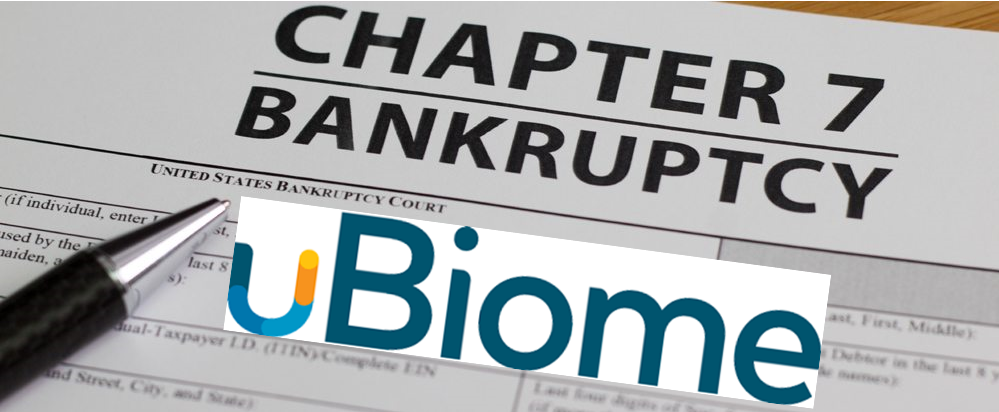
When science discovers new links between our health, the bacteria in our gut, what we eat, our brain functions, and our moods, people pay attention. Microbiome research has uncovered those gut-brain-axis links after the National Institutes of Health launched a five-year, $150 million research effort, which in turn gave rise to several microbiome testing and research startups who received hundreds of millions in financing, among them Finch Therapeutics, Kallyope, Second Genome, which research specific diseases, and startups such as uBiome, Viome, Thryve, DayTwo selling direct-to-consumer testing kits for disease prevention. There is also a public, not-for-profit project called American Gut, which has the lowest price for sequencing people’s microbiome at $99 but is limited in its results. Microbiome testing, like all types of genome sequencing or genomics tests, sequences the DNA (or RNA) of living organisms, bacteria and other microbes in this case.
One of these companies, uBiome, will no longer be included in that list. uBiome raised $83 million in venture capital, and was worth a whopping $600 million at the start of 2019, making the deep dive they took recently to nothing more than a liquidation valuation even more dramatic. After a series of unfortunate events of their own making, uBiome got busted for bad accounting practices, and most recently, for faulty science. It has now filed for Chapter 7 with plans to shut down. As reported by FierceBiotech, CVS stores turned down stocking their shelves with uBiome’s at-home, Explorer microbiome consumer test, after the shocking news were revealed. Two weeks ago, Business Insider reported that uBiome lost their laboratory certifications, forcing them to stop their clinical tests activities. Perhaps worse than the accounting practices are the news that the Explorer test had been tainted by using a reference sequence database that included samples from minors, infants and at least one animal and that was populated by fecal samples volunteered by employees and participants from an online fundraiser.
In the face of these news, the big question for consumers of direct-to-consumer genomics tests will be: How to validate the results of these genomics testing companies?
The main approach to validating a genomics testing company’s results is to get access to the raw sequence data and run third-party analysis on it to compare the results. When a direct-to-consumer genomic testing company makes their raw data available, it usually means they have nothing to hide. Ironically, uBiome, did offer the 16S rRNA raw data to their customers and even discussed how to analyze it, and discussed the analysis of the data in a Medium article in this way:
The study mentioned above (Edgar) was investigating a very specific bioinformatics analysis pipeline (QIIME) and a very specific 16S rRNA gene reference database (Greengenes). One of the problems identified in this study was that, in the Greengenes database, certain genera were placed under multiple families, thus creating unreliable taxonomic lineages. As we wrote above, at uBiome we use a proprietary bioinformatics pipeline and a different, manually curated sequence database that does not have these taxonomic overlaps.
Again, irony dictates that the manually curated sequence database uBiome mentioned in their Medium article is the database that was found to have tainted references in it.
At the QIIME forum, users shared their experiences with the uBiome raw data, for example, a May 2019 post was titled: “ubiome paired-end reads will not join! – User Support”. The statement does not sound positive even to non-expert ears, but on the positive side, at least the user was able to study their data, if only the “unpaired-end reads”.
In one of my previous microbiome articles, I mentioned that another way to evaluate a genomics testing service is to study their scientific publications, yet uBiome published a paper in 2017 in the renowned peer-reviewed scientific journal PLOS ONE, showing that published papers are not a fool-proof recipe for validating someone’s research, as we all know, of course. The journal PLOS ONE is now reviewing the paper.
Ultimately then, the answer to the question in the title is that we should only buy from direct-to-consumer genomics/omics sequencing services that provide the raw sequence data because it is the only way to inspect the results and quality of the data. Of the 5 direct-to-consumer microbiome testing options listed above and now that uBiome is gone, only American Gut and Thryve offer download of the raw data. With access to the data the consumers can either analyze the data themselves if they have expertise with microbiome analysis platforms, or they can request either guidance in doing so, or a second opinion from a “health data analyst” through Omicshelpdesk.com. If you want to have confidence in the results, the ability to reanalyze your results elsewhere, then, having access to the raw sequence data is imperative.
